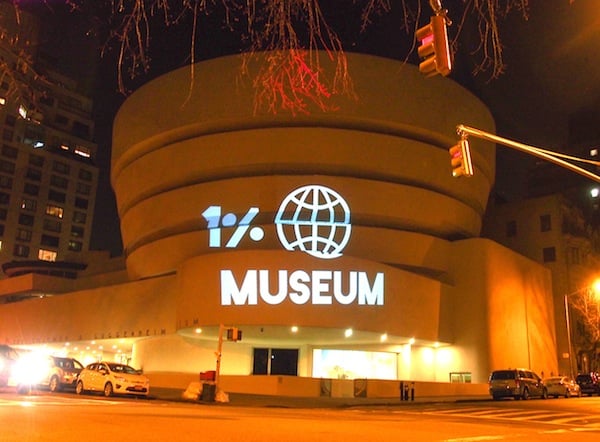
A professor at New York University has been banned from the United Arab Emirates, home to the college’s new Abu Dhabi campus. Andrew Ross, who specializes in labor issues, has been openly critical of the working conditions on UAE construction sites, including art museums like the Louvre, which are largely staffed by migrant labor (see What’s Really Going On at Abu Dhabi’s Saadiyat Island?).
On Monday, Ross was preparing to board a flight at Kennedy International Airport when he was told that the computer had flagged his passport, and that the UAE authorities were not allowing him to enter the country, reports the New York Times.
“They called the UAE authorities, and the authorities there said that I was not allowed to enter the country,” Ross told the Times. His spring break trip was to be spent furthering his investigations into construction site conditions in the UAE. He was told that he was barred from travelling to the country due to unspecified security concerns.
Based on his previous visits to Abu Dhabi, Ross had published a piece in the Times this past spring detailing the the exploitative kafala sponsorship system that has made the region’s high-end cultural construction projects, such as the NYU campus, possible.
The Illuminator’s projection on the Guggenheim Museum.
Courtesy the Illuminator.
Ross is a member of Gulf Labor, a group that has held numerous protests against the forthcoming Guggenheim Abu Dhabi at the museum’s New York location over the past year (see Guggenheim Protesters Make It Rain in Frank Lloyd Wright Rotunda and Protest at New York’s Guggenheim Calls Attention to Labor Conditions at UAE Expansion).
Ross is not the first activist the UAE has attempted to silence. Sean O’Driscoll, a freelance journalist who also reported on the country’s poor treatment of migrant workers for the Times, was threatened with prosecution by the UAE government for his involvement. He refused to write articles presenting the government in a favorable light, and was subsequently forced to leave the country.
Though some worry that NYU’s academic integrity is necessarily compromised by operating in a country with an autocratic regime, university spokesman John Beckman assured the Times that during the university’s five years in Abu Dhabi (before the campus opened last year, the school operated out of a temporary location), there had been “zero infringements” on academic freedom. He insisted that the government was ultimately in charge of visa and immigration issues.
Following the reports that NYU had not adhered to fair labor practices, as had been promised, the university and the government commissioned international investigative firm Nardello & Company to look into labor conditions at the NYU Abu Dhabi campus. The completed report is expected next month.